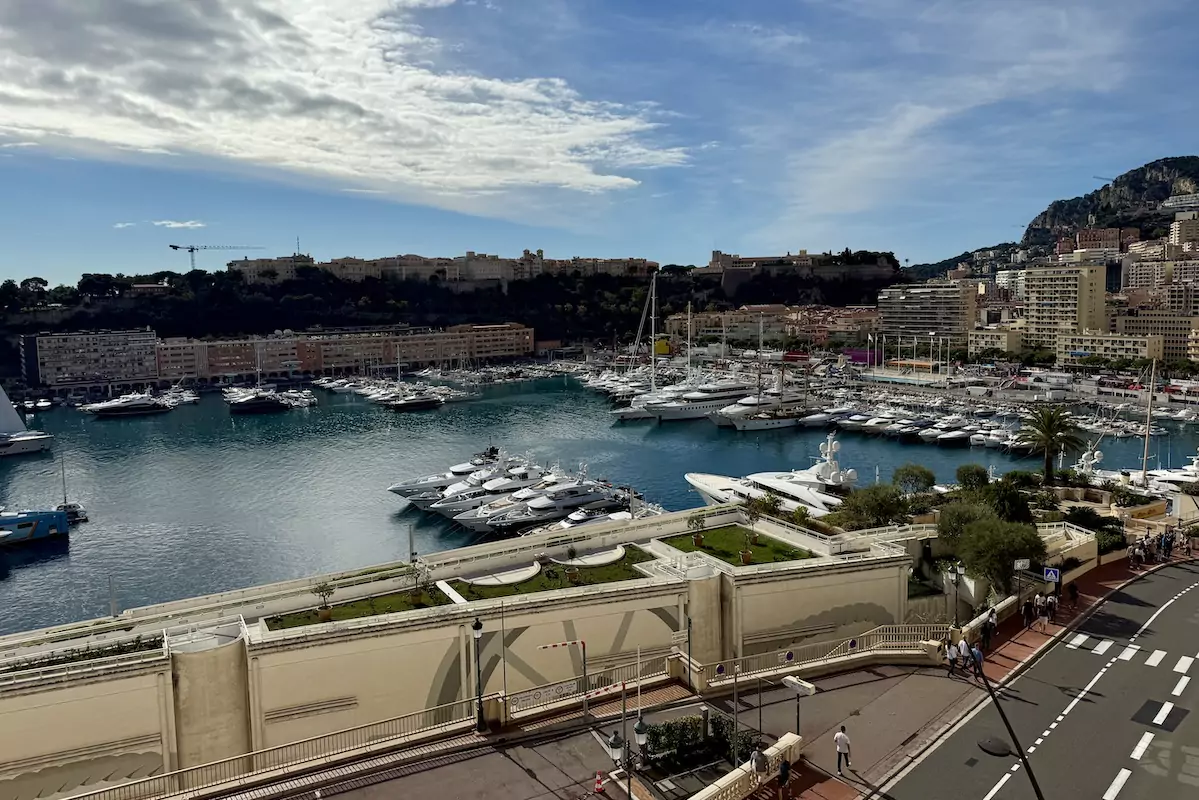In Monaco, the legal divide between married and unmarried couples is stark, with significant financial implications for those who choose not to wed. Unlike in some other countries, long-term cohabitation does not grant legal rights, leaving many in committed relationships vulnerable if they separate.
In this Q&A, Monaco Life’s Cassandra Tanti speaks with Raphaëlle Svara, Partner and co-head of the Private Clients team at CMS Monaco, to break down the key legal differences and explain why planning ahead is crucial.
Monaco Life: What are the key legal differences between how married and unmarried couples separate in Monaco?
Raphaëlle Svara: In a nutshell, I would separate cases into two categories. The first one is being considered a married couple in Monaco. To be legally married, you must be married at City Hall. Religious marriages are not recognised legally, so if you only have a religious ceremony, you are still considered unmarried—essentially just boyfriend and girlfriend.
If you are legally married and separate, you go through what we call a divorce. In this case, spouses have rights and obligations to each other. These arise from the duties that were established during the marriage. Financially speaking, the wealthier spouse may have to pay alimony to the less wealthy one. A lump sum could also be required at the end of the divorce proceeding. Additionally, one spouse may be required to cover the legal fees of the other.
There is also what we call the liquidation of the matrimonial regime, which depends on whether the couple had a separation of assets or a community of assets (other matrimonial regimes exist but those are the more common). If the couple opted for separation of assets, what belongs to one spouse remains theirs, even during the marriage. In contrast, under a community of assets regime, everything earned during the marriage is shared. In the event of divorce, the assets are divided accordingly.
Now, for unmarried couples, even if they have been living together as a married couple but never obtained a marriage certificate from City Hall, the situation is entirely different. There are no legal obligations or rights between the partners. Infidelity has no legal consequences, and there is no alimony, no lump sum or liquidation of assets. Essentially, it is a separation without any financial protection for the poorer party in the relationship.

And there’s no time cap on any of this? You could be together for 15 or 35 years, and it wouldn’t change anything?
Exactly. While the duration of the marriage makes a difference in the determination of the lump sum in case of divorce, you could be together for one year or 35 years—it doesn’t matter for the separation of non married couple. This type of union is permitted, of course, and you can have children, but it does not trigger any financial rights between the partners during the relationship and in case of separation. That is different from countries like Australia or Canada, where long-term cohabitation can create legal obligations.
As a lawyer in this field, do you find that there’s a misconception among people who have been in long-term relationships—thinking they are entitled to financial rights when they separate, even if they weren’t married?
Yes, absolutely. From my experience, foreign residents—especially English-speaking ones from countries like Canada and Australia—are often unaware of the legal situation here. The first question they ask in case of separation is, “What are my rights?” And the truth is, unless they were legally married, they have none.
French people are generally more aware of this because it’s the same in France. But for others, it comes as a huge shock. The only legal protection in such cases is for children. A parent still has financial obligations towards their children, but that amount is often much lower than what the financially dependent parent may have received throughout the relationship.
Speaking of children, sometimes a financially stronger spouse might threaten to take full custody by saying, “I earn more money, so I should get the children.” Does that argument hold any weight in a separation?
No, not at all. Whether it’s a divorce or a separation of an unmarried couple, the judge will always consider the best interests of the child—not the financial situation of the parents.
The primary question is: Who raised the children on a daily basis? Who takes care of them? If both parents are involved and capable, then they can share custody. But in cases where one parent is absent or does not take good care of the child, custody may lean towards the more present parent.
The argument of “I have more money, so I should have custody” is completely invalid. In fact, it’s the opposite—if the financially weaker parent gets custody, the other parent will have to contribute even more financially to support the children.
But that financial support is strictly for the children, correct? Unlike in marriage, where a judge might consider a spouse’s lifestyle, that’s not taken into account in a separation?
Exactly. In a separation, the standard of living is not a legal consideration. If a couple lived in luxury for 30 years and then separated, the wealthier party has no obligation to maintain the other’s lifestyle.
For children, however, there is some room for negotiation. A parent can argue that the children should have a standard of living similar to what they had before. But this is a negotiation—judges award financial support based on lifestyle, but in reality the fixed amount is often less than what the poorer spouse was used to living with in the relationship. The focus is strictly on the child’s well-being.
Is there anything unmarried couples can do to protect themselves legally? Can they sign contracts similar to prenups?
For those who don’t want to get married, there is no legally binding contract that fully protects them no matter which partner (wealthier or poorer) they are.
There is something called a “cohabitation contract” (contrat de cohabitation) in Monaco, which is a relatively new concept (2019). It’s signed in front of a notary and outlines how expenses will be handled during the relationship. However, it does not create financial rights in the event of a breakup.
One case I handled involved a couple who lived together for 20 years and had children but were not legally married. The wealthier partner voluntarily agreed to pay a lump sum after separation, even though he had no legal obligation to do so. We formalised this agreement in court, but it was entirely based on goodwill, and it was the only time the courts have ever seen anything like this.
What advice would you give to people on how to protect themselves?
If you’re married, a prenuptial agreement is the best way to protect yourself. It forces both parties to understand the legal consequences of marriage before entering into it. Many couples don’t think about the possibility of divorce when they’re planning their wedding, but a prenup ensures that both people are informed about what might happen.
For unmarried couples, there’s no real legal protection. The best advice I can give—especially for the financially dependent partner—is to have financial independence.
Getting a job is not just about money; it’s about knowing how to take care of yourself. I’ve seen many cases where someone has been financially dependent on their partner for decades, and when they separate, they don’t just struggle financially—they also don’t know how to handle basic life responsibilities. They may not know how to pay bills, manage bank accounts, or even sign a lease on their own.
Having a job, even a small one, gives you more than just income—it gives you self-confidence, decision-making skills, and the ability to stand on your own. It’s a form of protection, and I think it’s essential for everyone, especially women, to have some level of financial and practical independence.
That’s a really important point. Do you think Monaco’s legal system should offer more protection for long-term, unmarried couples?
Yes, I do. The way relationships function has evolved—many people no longer feel religious or social pressure to marry. In a Catholic country like Monaco, marriage remains the only recognised union, but in reality, many couples live as if they are married without the legal protections.
I believe there should be some recognition of these relationships, at least after a significant amount of time together. I have seen cases where people build their entire lives with someone and end up with nothing after a breakup. That is extremely difficult, especially for older individuals who may not have a financial safety net.
What about inheritance? If an unmarried partner dies, does the surviving partner have any rights?
No, unless they are explicitly mentioned in a will. If someone dies without a will, their partner receives nothing—legally, they are a stranger.
This is why having a will is crucial for unmarried couples. However, even if you are mentioned in a will, it can be revoked at any time. In contrast, a legally married spouse can have inheritance rights that cannot be taken away.
Monaco doesn’t have a PACS (civil union) system like France, does it?
No, Monaco does not have PACS. Instead, they introduced the cohabitation contract I mentioned earlier. It also recognises same-sex couples and other forms of partnerships.
But it’s not the same as PACS, and it does not grant financial rights upon separation.
So to summarise, the key takeaway is that there is a massive legal difference between married and unmarried couples in Monaco.
Exactly. The legal gap is huge. Knowing your rights is essential, whether you are married or not.
Monaco Life is produced by real multi-media journalists writing original content. See more in our free newsletter, follow our Podcasts on Spotify, and check us out on Threads, Facebook, Instagram, LinkedIn and Tik Tok.
Main photo by Cassandra Tanti, Monaco Life



